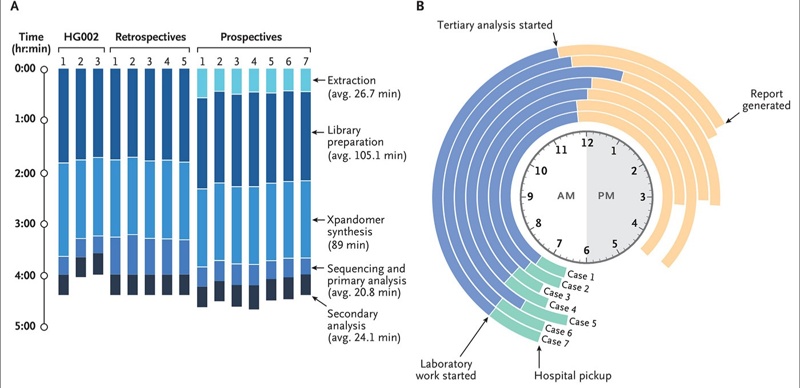U.S. researchers set Guinness record for fastest human genome sequencing
A team of American doctors and engineers has set a Guinness World Record for the fastest decoding of the human genome, completing the process in under four hours. The achievement, described in the New England Journal of Medicine, marks a significant step toward improving the diagnosis and treatment of critically ill newborns, Kazinform News Agency correspondent reports.

The research was carried out by specialists from Boston Children’s Hospital in partnership with Roche Sequencing Solutions. Using a prototype device based on a nanopore sequencing method known as Sequencing-by-Expansion (SBX), the team demonstrated that complete genome sequencing can now be performed within hours rather than days or weeks.
Rapid genome sequencing is especially valuable for physicians working in neonatal intensive care units, where identifying genetic abnormalities quickly can be critical to treatment. “The average time to obtain genomic data was four hours and four minutes, with the fastest result achieved in under four hours,” the study reported.
Over a three-week period, the researchers analyzed the genomes of 15 newborns with parental consent. The process allowed doctors to identify several genetic conditions almost immediately. In one case, an infant was found to have unbalanced translocations between the 10th and 14th chromosomes. Another newborn experiencing tonic seizures was diagnosed with a mutation in the KCNQ2 gene, which is associated with neonatal epilepsy.

According to study author Monica Wojcik, the breakthrough could transform how rare diseases are diagnosed in newborns. She noted that families currently often wait up to a week for a genetic diagnosis, while the new approach could provide answers within hours - a development that may prove life-saving in intensive care settings.
Earlier, it was reported that a recent analysis published in Nature explores the emerging potential of polygenic genome editing - the process of modifying multiple genetic variants at once.
